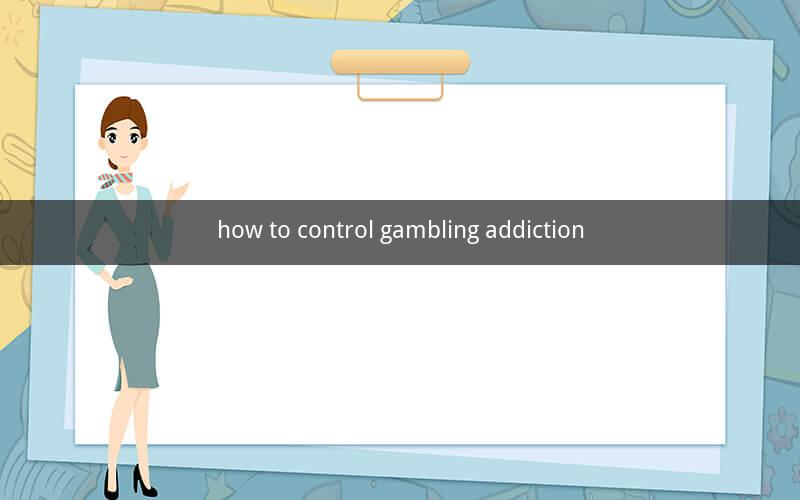
Table of Contents
1. Understanding Gambling Addiction
2. The Impact of Gambling Addiction
3. Recognizing the Signs of a Gambling Problem
4. Seeking Professional Help
5. Building a Support System
6. Developing Healthy Coping Mechanisms
7. Financial Management Strategies
8. Setting Realistic Goals
9. Learning from Past Mistakes
10. Staying Motivated
1. Understanding Gambling Addiction
Gambling addiction, also known as compulsive gambling or problem gambling, is a condition characterized by an inability to control the urge to gamble despite negative consequences. It is often categorized as an impulse-control disorder and can affect individuals of all ages, genders, and socioeconomic backgrounds.
2. The Impact of Gambling Addiction
Gambling addiction can have severe and far-reaching consequences, impacting not only the individual but also their family, friends, and workplace. Financial difficulties, relationship problems, legal issues, and even mental health disorders are common outcomes of untreated gambling addiction.
3. Recognizing the Signs of a Gambling Problem
Identifying the signs of a gambling problem is crucial in seeking timely intervention. Common signs include:
- Increasing the amount of money and time spent gambling
- Feeling restless or irritable when not gambling
- Using gambling as a way to escape problems or negative emotions
- Borrowing money to fund gambling activities
- Lying to friends and family about gambling habits
- Neglecting responsibilities at work, school, or home
4. Seeking Professional Help
Professional help is essential for overcoming gambling addiction. Therapists, counselors, and addiction specialists can provide personalized treatment plans tailored to individual needs. Common treatment approaches include cognitive-behavioral therapy (CBT), motivational interviewing, and support groups.
5. Building a Support System
A strong support system can significantly improve the chances of overcoming gambling addiction. This may include family members, friends, support groups, and professionals. Sharing experiences and seeking advice from others who have faced similar challenges can be incredibly beneficial.
6. Developing Healthy Coping Mechanisms
Finding healthy ways to cope with stress, boredom, and negative emotions is crucial in preventing relapse. Activities such as exercise, meditation, hobbies, and spending time with loved ones can help fill the void left by gambling.
7. Financial Management Strategies
Addressing the financial aspect of gambling addiction is vital. Strategies may include:
- Creating a budget and sticking to it
- Selling off non-essential items to raise funds
- Seeking financial counseling to develop a plan for paying off debts
- Learning to manage credit and avoid taking on new debt
8. Setting Realistic Goals
Setting achievable goals can help maintain motivation and track progress. Goals may include:
- Reducing the amount of money and time spent gambling
- Avoiding triggering situations or environments
- Seeking help from a professional or support group
- Developing a healthy routine and lifestyle
9. Learning from Past Mistakes
Reflecting on past mistakes and learning from them is an essential part of the recovery process. This may involve:
- Identifying triggers that lead to relapse
- Developing strategies to avoid these triggers
- Seeking forgiveness from loved ones and forgiving oneself
10. Staying Motivated
Maintaining motivation throughout the recovery process can be challenging. Here are some tips to help stay motivated:
- Celebrate small victories and progress
- Keep a journal to track achievements and challenges
- Remind oneself of the negative consequences of gambling addiction
- Stay connected with a supportive network
10 Questions and Answers
Q1: What are the main causes of gambling addiction?
A1: The causes of gambling addiction are complex and can include genetic factors, environmental influences, and personal vulnerabilities.
Q2: How can I tell if I have a gambling problem?
A2: If you find yourself spending increasing amounts of time and money on gambling, feeling restless or irritable when not gambling, and neglecting responsibilities, you may have a gambling problem.
Q3: Is it possible to overcome gambling addiction on my own?
A3: While some individuals may find success in overcoming gambling addiction independently, seeking professional help and joining a support group can significantly improve the chances of long-term recovery.
Q4: Can medication help treat gambling addiction?
A4: Medication may be used in conjunction with therapy to treat certain underlying conditions that contribute to gambling addiction, but it is not a standalone treatment for the disorder.
Q5: How can I find a reputable therapist or counselor to help me with my gambling addiction?
A5: Look for professionals certified in addiction counseling or with experience treating gambling addiction. Ask for referrals from support groups or mental health organizations.
Q6: What are the benefits of joining a support group?
A6: Support groups provide a safe and non-judgmental environment for sharing experiences, receiving advice, and developing coping strategies.
Q7: How can I protect my finances while overcoming gambling addiction?
A7: Create a budget, sell off non-essential items, seek financial counseling, and avoid taking on new debt to manage your finances effectively.
Q8: What should I do if I relapse after overcoming gambling addiction?
A8: If you relapse, it is important to acknowledge the setback and seek help immediately. Analyze the triggers and develop strategies to avoid them in the future.
Q9: How long does it take to recover from gambling addiction?
A9: Recovery from gambling addiction is a lifelong process. While some individuals may achieve long-term sobriety relatively quickly, others may require ongoing support and treatment.
Q10: Can gambling addiction affect my relationships?
A10: Yes, gambling addiction can have a significant impact on relationships, leading to trust issues, financial strain, and emotional distress. Working on these issues through therapy and support groups can help rebuild and strengthen relationships.